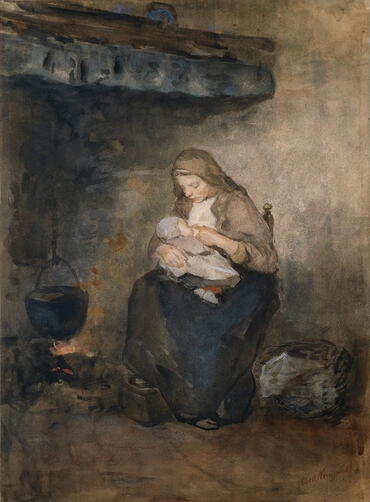1
Les hommes d'Ephraïm dirent à Gédéon: Que signifie cette manière d'agir envers nous? pourquoi ne pas nous avoir appelés, quand tu es allé combattre Madian? Et ils eurent avec lui une violente querelle.
2
Gédéon leur répondit: Qu'ai-je fait en comparaison de vous? Le grappillage d'Ephraïm ne vaut-il pas mieux que la vendange d'Abiézer?
3
C'est entre vos mains que Dieu a livré les chefs de Madian, Oreb et Zeeb. Qu'ai-je donc pu faire en comparaison de vous? Lorsqu'il eut ainsi parlé, leur colère contre lui s'apaisa.
4
Gédéon arriva au Jourdain, et il le passa, lui et les trois cents hommes qui étaient avec lui, fatigués, mais poursuivant toujours.
5
Il dit aux gens de Succoth: Donnez, je vous prie, quelques pains au peuple qui m'accompagne, car ils sont fatigués, et je suis à la poursuite de Zébach et de Tsalmunna, rois de Madian.
6
Les chefs de Succoth répondirent: La main de Zébach et de Tsalmunna est-elle déjà en ton pouvoir, pour que nous donnions du pain à ton armée?
7
Et Gédéon dit: Eh bien! lorsque l'Eternel aura livré entre mes mains Zébach et Tsalmunna, je broierai votre chair avec des épines du désert et avec des chardons.
8
De là il monta à Penuel, et il fit aux gens de Penuel la même demande. Ils lui répondirent comme avaient répondu ceux de Succoth.
9
Et il dit aussi aux gens de Penuel: Quand je reviendrai en paix, je renverserai cette tour.
10
Zébach et Tsalmunna étaient à Karkor et leur armée avec eux, environ quinze mille hommes, tous ceux qui étaient restés de l'armée entière des fils de l'Orient; cent vingt mille hommes tirant l'épée avaient été tués.
11
Gédéon monta par le chemin de ceux qui habitent sous les tentes, à l'orient de Nobach et de Jogbeha, et il battit l'armée qui se croyait en sûreté.
12
Zébach et Tsalmunna prirent la fuite; Gédéon les poursuivit, il s'empara des deux rois de Madian, Zébach et Tsalmunna, et il mit en déroute toute l'armée.
13
Gédéon, fils de Joas, revint de la bataille par la montée de Hérès.
14
Il saisit d'entre les gens de Succoth un jeune homme qu'il interrogea, et qui lui mit par écrit les noms des chefs et des anciens de Succoth, soixante-dix-sept hommes.
15
Puis il vint auprès des gens de Succoth, et dit: Voici Zébach et Tsalmunna, au sujet desquels vous m'avez insulté, en disant: La main de Zébach et de Tsalmunna est-elle déjà en ton pouvoir, pour que nous donnions du pain à tes hommes fatigués?
16
Et il prit les anciens de la ville, et châtia les gens de Succoth avec des épines du désert et avec des chardons.
17
Il renversa aussi la tour de Penuel, et tua les gens de la ville.
18
Il dit à Zébach et à Tsalmunna: Comment étaient les hommes que vous avez tués au Thabor? Ils répondirent: Ils étaient comme toi, chacun avait l'air d'un fils de roi.
19
Il dit: C'étaient mes frères, fils de ma mère. L'Eternel est vivant! si vous les eussiez laissés vivre, je ne vous tuerais pas.
20
Et il dit à Jéther, son premier-né: Lève-toi, tue-les! Mais le jeune homme ne tira point son épée, parce qu'il avait peur, car il était encore un enfant.
21
Zébach et Tsalmunna dirent: Lève-toi toi-même, et tue-nous! car tel est l'homme, telle est sa force. Et Gédéon se leva, et tua Zébach et Tsalmunna. Il prit ensuite les croissants qui étaient aux cous de leurs chameaux.
22
Les hommes d'Israël dirent à Gédéon: Domine sur nous, et toi, et ton fils, et le fils de ton fils, car tu nous as délivrés de la main de Madian.
23
Gédéon leur dit: Je ne dominerai point sur vous, et mes fils ne domineront point sur vous; c'est l'Eternel qui dominera sur vous.
24
Gédéon leur dit: J'ai une demande à vous faire: donnez-moi chacun les anneaux que vous avez eus pour butin. -Les ennemis avaient des anneaux d'or, car ils étaient Ismaélites. -
25
Ils dirent: Nous les donnerons volontiers. Et ils étendirent un manteau, sur lequel chacun jeta les anneaux de son butin.
26
Le poids des anneaux d'or que demanda Gédéon fut de mille sept cents sicles d'or, sans les croissants, les pendants d'oreilles, et les vêtements de pourpre que portaient les rois de Madian, et sans les colliers qui étaient aux cous de leurs chameaux.
27
Gédéon en fit un éphod, et il le plaça dans sa ville, à Ophra, où il devint l'objet des prostitutions de tout Israël; et il fut un piège pour Gédéon et pour sa maison.
28
Madian fut humilié devant les enfants d'Israël, et il ne leva plus la tête. Et le pays fut en repos pendant quarante ans, durant la vie de Gédéon.
29
Jerubbaal, fils de Joas, s'en retourna, et demeura dans sa maison.
30
Gédéon eut soixante-dix fils, issus de lui, car il eut plusieurs femmes.
31
Sa concubine, qui était à Sichem, lui enfanta aussi un fils, à qui on donna le nom d'Abimélec.
32
Gédéon, fils de Joas, mourut après une heureuse vieillesse; et il fut enterré dans le sépulcre de Joas, son père, à Ophra, qui appartenait à la famille d'Abiézer.
33
Lorsque Gédéon fut mort, les enfants d'Israël recommencèrent à se prostituer aux Baals, et ils prirent Baal-Berith pour leur dieu.
34
Les enfants d'Israël ne se souvinrent point de l'Eternel, leur Dieu, qui les avait délivrés de la main de tous les ennemis qui les entouraient.
35
Et ils n'eurent point d'attachement pour la maison de Jerubbaal, de Gédéon, après tout le bien qu'il avait fait à Israël.







